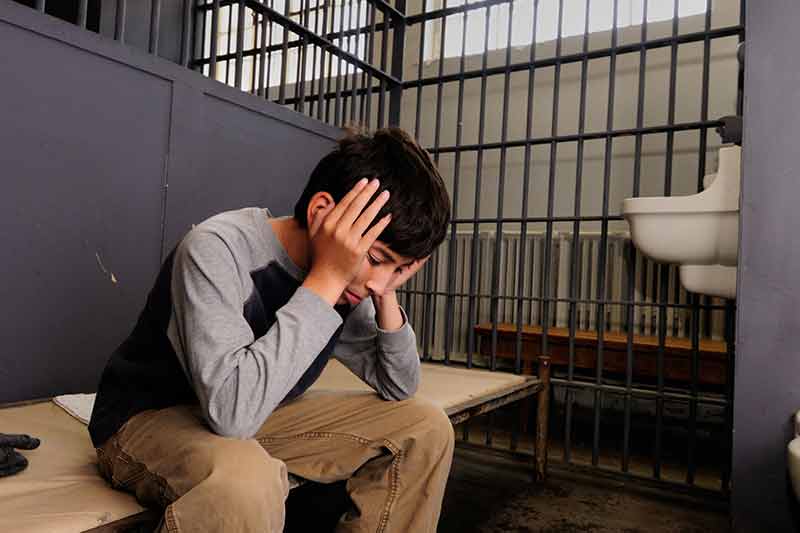NCJR Studies Restricted Housing for Juveniles
In response to LB598 which places limits on the use of restricted housing in the Nebraska correctional system, NCJR published a research brief outlining recommendations for best practice standards for the use of restricted housing with juveniles.
- published: 2018/04/05
- contact: Emily Wright. Ph.D., and Ryan Spohn, Ph.D. - Nebraska Center for Justice Research
- phone: 402.554.3898
- email: emwright@unomaha.edu
- search keywords:
- juvenile offenders
- incarceration
- punishment
- restricted housing

Omaha – The use and overuse of restricted housing in U.S. prisons has received increasing attention as a result of two factors. First, states and the federal government substantially increased the use of prison, beginning in the mid-1970s and continuing into the 21st century. Known as mass incarceration, this increase in rates of incarceration put significant strains on correctional systems, including controlling the behavior of these large correctional populations. Second, during this time there was also an increase in our scientific knowledge of the negative impact of solitary confinement on the brain and overall mental health. This appears to be especially true for youth, whose brains have not fully developed. Consequently, the Nebraska Legislature enacted LB598, which took effect July 1, 2016, that placed limits on the use of restricted housing and increased reporting requirements for the use of restricted housing in the Nebraska correctional system.
In 2017, the Nebraska Center for Justice Research published a research brief outlining recommendations for best practice standards for the use of restricted housing with juveniles. Here is a summary of the findings.
Restricted housing among juvenile populations—the social and physical isolation of certain youth from other juveniles, recreational time, and educational materials—is a punitive method employed by juvenile correctional facilities that restricts youths’ physical movement for a prolonged period of time. Nebraska houses the third highest per capita number of juveniles residing in detention, correctional, or residential facilities in the United States, and many facilities across the state report using restricted housing for much longer period than surrounding states.
Due to their age and associated developmental needs (e.g., brain development, social interactions, etc.), juveniles are at higher risk for experiencing negative effects of restricted housing, such as psychosis, suicidal ideation/attempts, depression, and anxiety. Further, the use of isolation may exacerbate existing mental and emotional problems among juveniles. Restricted housing is strongly linked to suicide attempts, in situations where juveniles are unattended and unmonitored. Moreover, juveniles in restricted housing are unable to access positive and prosocial activities or educational programming, and are thus doubly punished while in isolation.
Due to the negative effects of restricted housing among juveniles, NCJR recommends the adoption of the following best practice standards for the use of restricted housing for juveniles in the Nebraska Department of Correctional Services.
- Use restricted housing only as a temporary response to behavior that threatens immediate harm to the youth or others.
- Limit the time juveniles spend in restricted housing, and monitor them every 15 minutes.
- Prior to using restricted housing, staff should use less restrictive techniques and rehabilitative efforts.
- Explain the reasons for isolation to juveniles and the fact that they will be released upon regaining self-control.
- Assess youth at intake for mental health, suicide, or other risk factors that may be exacerbated by the use of restricted housing.
- Keep designated restricted housing areas suicide resistant and protrusion-free.
- Better understand the unique developmental needs of juveniles so as to minimize the employment of tactics (such as restricted housing) that can negatively affect healthy development.
The complete research brief, Restricted Housing Among Justice Populations, is available on the the NCJR website.